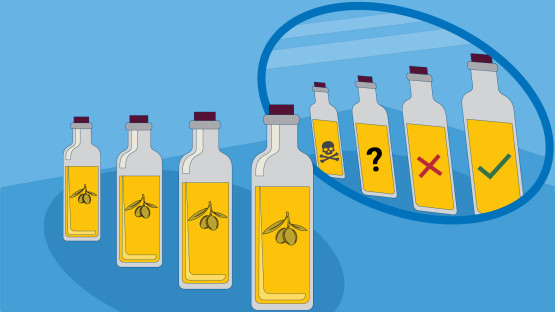When consumers buy food, they cannot always detect food fraud. (Infographic: Mariia Platonova/IAEA)
The adulterating of food products for financial gain, either through dilution, substitution, mislabeling, or other action, has become a lucrative industry. And because food fraud is designed to avoid detection, gauging its financial impacts can be difficult. Experts estimate that food fraud affects 1 percent of the global food industry at a cost of about $10 billion to $15 billion a year, with some estimates putting the cost as high as $40 billion a year, according to the U.S. Food and Drug Administration.
A reactor operator at MURR works with a sample can from the reactor pool. (Photo: University of Missouri)
On April 10, the University of Missouri (MU) took its first formal step toward building NextGen MURR when school officials issued the request for qualifications for the project. The RFQ is a solicitation for interested companies to offer the design, engineering, licensing, environmental, and developmental services that are needed for NextGen MURR, planned to be larger and more capable than the school’s existing University of Missouri Research Reactor (MURR)—which itself has been the most powerful research reactor and most intense neutron source on any U.S. campus since it began operating in 1966.


